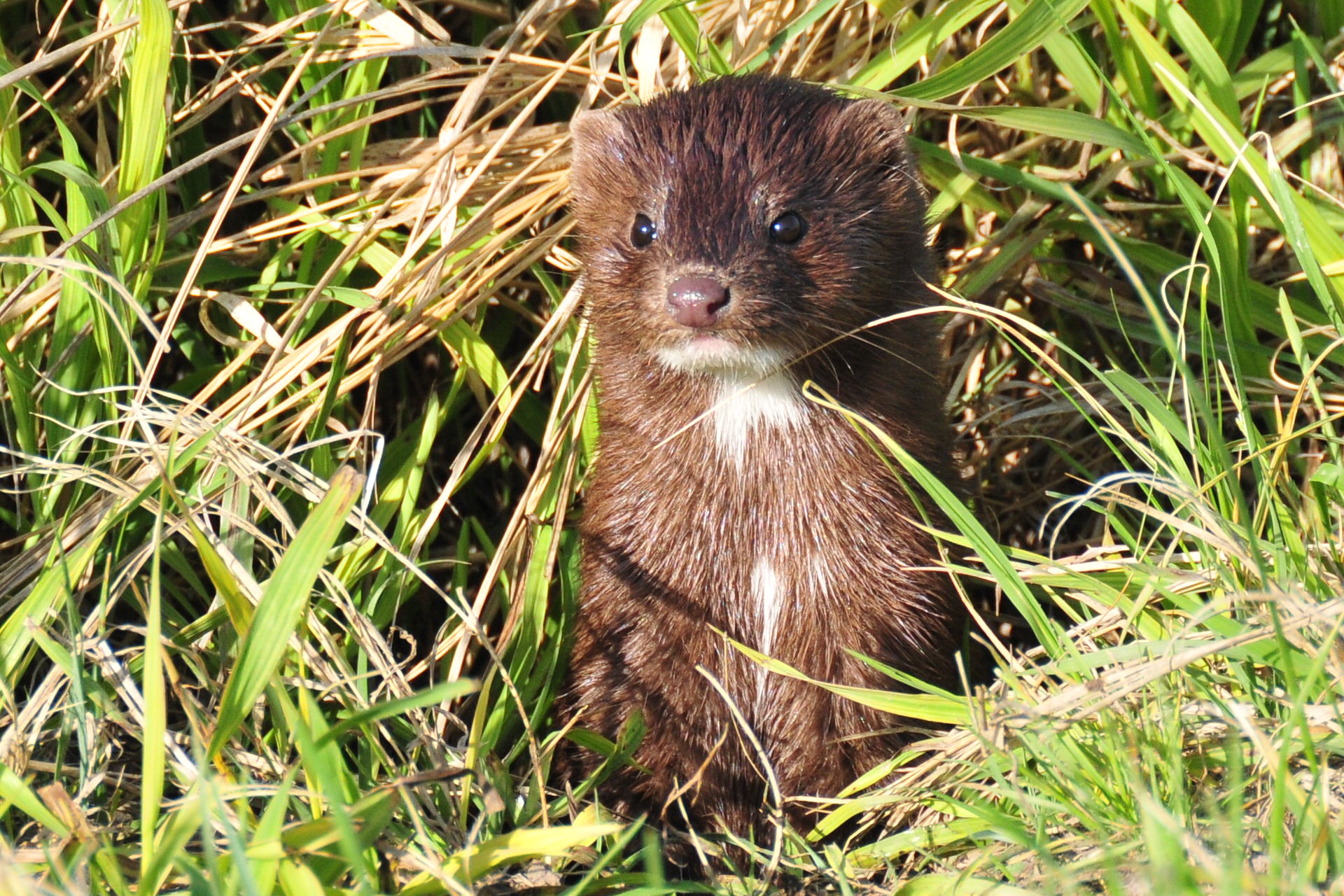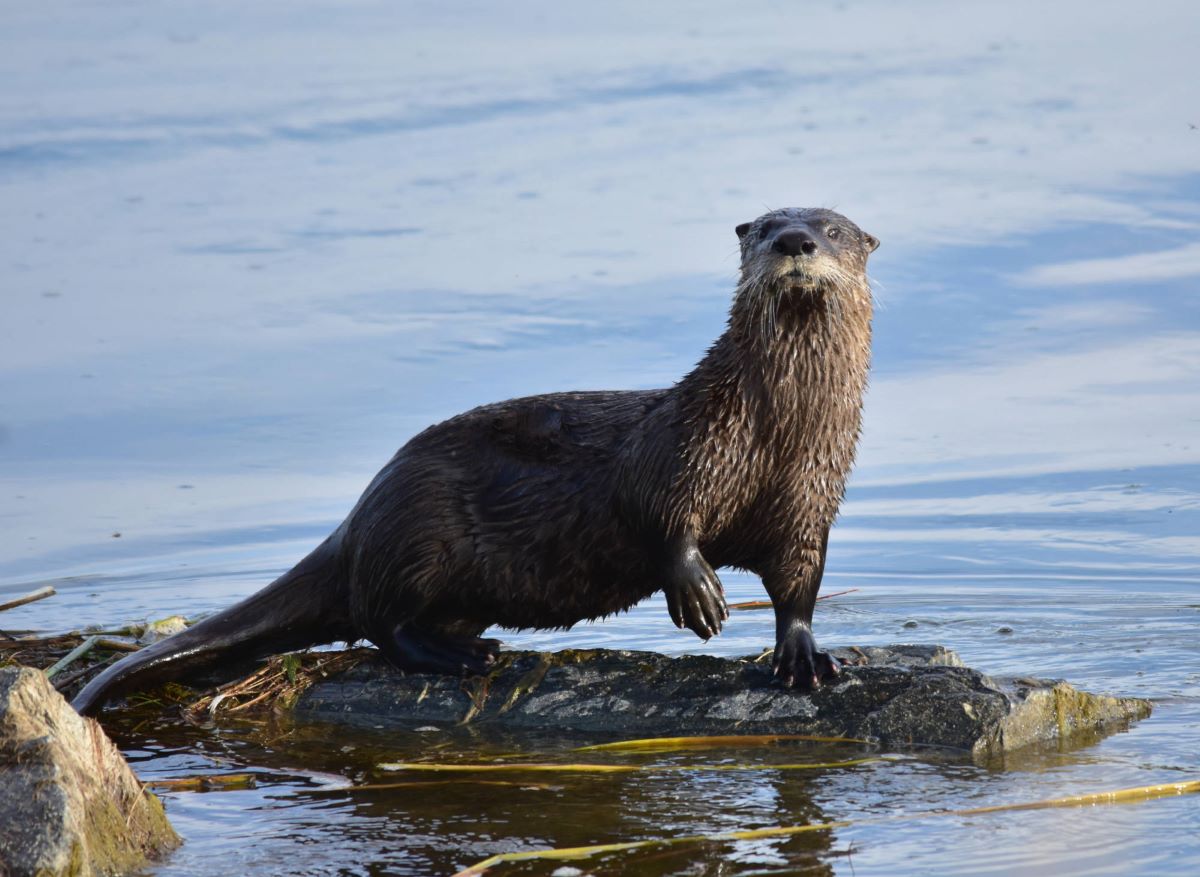Technically, furbearers include all mammals that “bear fur.” However, furbearers have traditionally been classified as mammals that are trapped or hunted primarily for their economic value – their fur. Like many other species, furbearers must be managed in a sustainable and ecologically sound manner to ensure healthy populations throughout Delaware.
Furbearers are a diverse group of mammals including large and small carnivores and even some small rodents. Many furbearers can adapt and thrive in urban environments – they are common and abundant throughout the state.
In Delaware, our furbearers are beavers, eastern coyotes, gray fox, mink, muskrats, nutria, opossums, raccoons, red fox, river otters, skunks and weasels.
Delaware’s furbearer hunting and trapping seasons and regulations are available in the Furbearer Trapping & Hunting section of the Delaware Hunting and Trapping Guide.

No trapping is permitted on state wildlife areas without a valid lease. Leases are put out for bid in October of each year via the state Bid Solicitation Directory.
Hunters or trappers who harvest coyotes or nutria are required to report their harvests by calling 302-735-3600. Harvests of coyotes and nutria must be reported by the end of the next business day.
All river otters must be tagged by an authorized representative of the DNREC Division of Fish and Wildlife in accordance with the requirements of the Convention on International Trade in Endangered Species (CITES). Call 302-735-3600 to arrange to have your otter tagged once the pelt has been stretched and dried, but before it is sold or shipped out of state. Tags will not be distributed to trappers but instead must be affixed to otter pelts by a division representative; bring your pelts with you for tagging.

Frequently Asked Questions about Trap Tags
Trapping and Furbearer Management (Northeast Furbearer Resources Technical Committee)
Regulated Trapping and the North American Model of Wildlife Conservation (Association of Fish & Wildlife Agencies)
Trapper Education Manual (Association of Fish & Wildlife Agencies)
Trappers must purchase a trapping license through the Digital DNREC system. Those who have previously purchased a trapping license through the system can renew through their Digital DNREC account or at an authorized recreational license agent, without waiting for approval.
Trappers who have never purchased a trapping license through the Digital DNREC system can use their existing account, if they have one, or create a new account. New trapping license applications require approval by the DNREC Division of Fish and Wildlife. New applicants should plan ahead.
Mail-in applications are available on the DNREC Recreational Licensing page or by calling 302-739-9918.
Licensed trappers will be issued a permanent license number that can be renewed annually.

Trapper education is required for a Delaware trapping license for all persons born on or after January 1, 1978.
Class and Field work sessions include trapping history, heritage and ethics, furbearing animals of Delaware, trapping equipment, boating safety, hypothermia, practical water sets, hands-on instruction, how tides affect sets, proper skinning techniques, fur handling and how to market furs.
Classes are generally held at the end of November. Use the Digital DNREC Hunter Education system or call 302-735-3600 (ext. 1) to sign up.
Delaware also accepts two online trapper education courses found at TrapperEd.com (Illinois Basic Trapper Education Course and Kansas Furharvester Education Course – No fee). Students who use this option must contact the Office of Hunter Education at huntereducation@delaware.gov or 302-735-3600 (Ext. 1) to update their account to reflect course completion. Students will be required to submit a copy of their course completion certificate. Please include a phone number where the Hunter Education Office may call, in case there are any questions.
These best management practices for furbearer hunting and trapping from the Association of Fish & Wildlife Agencies are not regulatory. They may provide information regarding devices that are not legal in Delaware and some other states.
Find information on Delaware’s regulations and requirements in the Furbearer Trapping & Hunting section of the Delaware Hunting and Trapping Guide.